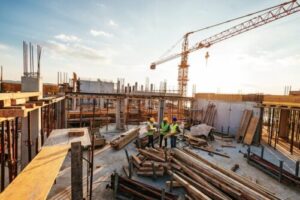KEY FACTORS AFFECTING LAND AND BUILDING INVESTMENTS
Introduction: Investing in land and buildings can be a lucrative endeavor, providing individuals and businesses with opportunities for long-term capital appreciation and income generation. However, numerous factors can influence the success or failure of such investments. This article explores the key factors that affect land and building investments, helping investors make informed decisions and maximize their returns.
- Location: One of the most critical factors influencing land and building investments is location. The desirability of a location can impact property values, demand for rentals, and overall investment potential. Factors such as proximity to urban centers, transportation links, amenities, schools, and employment hubs play a significant role in determining the attractiveness of a location. Investors should carefully evaluate the location’s current and future development prospects, as well as consider the overall market conditions in the area.
- Market Conditions: The state of the real estate market is another crucial factor that can significantly impact land and building investments. Market conditions, including supply and demand dynamics, interest rates, economic stability, and demographic trends, can influence property prices and rental rates. Investors should conduct thorough market research and analysis to understand the current and projected trends in the local real estate market. This knowledge can help investors make informed decisions regarding the timing and type of property investments.
- Property Type and Use: The type of property and its designated use are essential factors to consider when making land and building investments. Different property types, such as residential, commercial, industrial, or agricultural, have distinct characteristics and investment considerations. Understanding the specific demands, regulations, and potential risks associated with each property type is crucial for successful investment outcomes. Investors should evaluate the compatibility between the property’s use and the surrounding area, as well as analyze the long-term viability and potential for growth in the chosen property sector.

- Infrastructure and Development: The availability and quality of infrastructure and development in the vicinity of a property can significantly impact its investment potential. Access to well-maintained roads, public transportation, utilities, and essential services can enhance property values and attract potential buyers or tenants. Additionally, investors should consider any planned infrastructure projects, such as new highways, airports, or commercial centers, as they can positively affect property values in the future. Conversely, inadequate infrastructure or the absence of development plans may hinder investment prospects.
- Legal and Regulatory Factors: Legal and regulatory factors have a substantial impact on land and building investments. Investors must navigate zoning regulations, building codes, land use restrictions, and other legal requirements before making an investment. Familiarity with local laws, permits, and licensing processes is crucial to ensure compliance and avoid potential setbacks or penalties. Investors should consult legal professionals specializing in real estate to understand and address any legal or regulatory complexities associated with their investment.
- Financial Considerations: Investing in land and buildings requires careful financial planning and analysis. Factors such as the purchase price, financing options, transaction costs, property taxes, insurance, and ongoing maintenance expenses should be thoroughly evaluated. Additionally, investors should consider the potential rental income or resale value of the property to determine its return on investment (ROI). Conducting a comprehensive financial analysis, including cash flow projections, risk assessment, and exit strategies, is essential for making informed investment decisions.

Conclusion: Successful land and building investments rely on a combination of careful analysis, market knowledge, and informed decision-making. Understanding the key factors that affect these investments, such as location, market conditions, property type and use, infrastructure, legal and regulatory considerations, and financial factors, empowers investors to mitigate risks and capitalize on opportunities. By conducting thorough due diligence and seeking professional advice when needed, investors can increase their chances of achieving profitable outcomes in the dynamic world of real estate investing.


